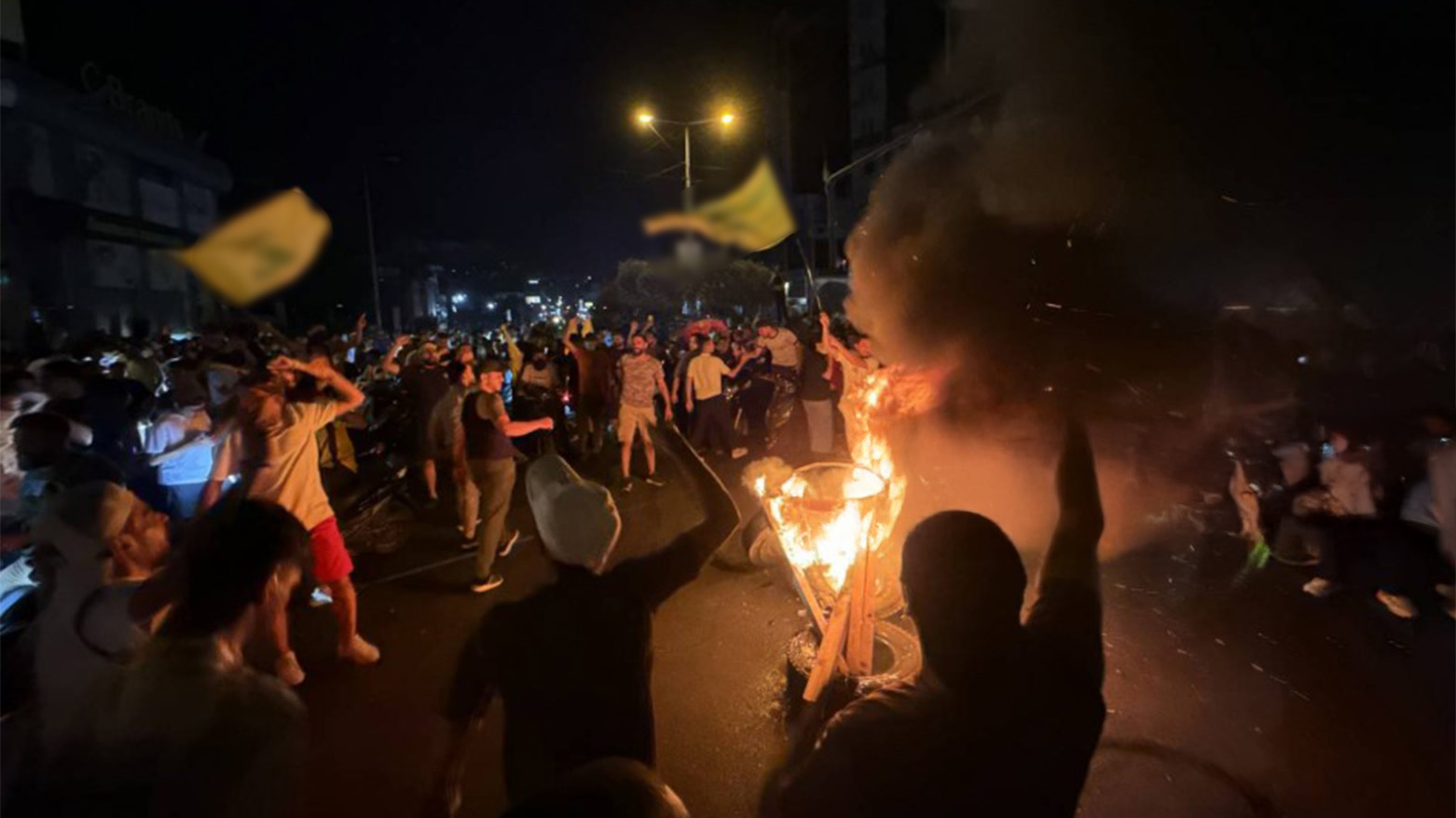One Year After Israel’s War, Hezbollah Maintains Financial Network
Hezbollah’s ability to continue paying fighters, provide aid to families, and maintain its networks has underscored its resilience and its reliance on Iran’s backing and a shadow financial system.

ERBIL (Kurdistan24) — One year after a devastating war with Israel that killed Hezbollah leader Hassan Nasrallah and dealt massive blows to the group’s strongholds, the Iran-backed movement has managed to maintain financial stability, continue paying its fighters, and sustain its extensive network of social services.
Despite the September 2024 assassination of Nasrallah in an Israeli strike, Hezbollah has preserved internal cohesion under his successor, Naim Qassem. Fighters still receive monthly cash salaries ranging from $500 to $700 — well above Lebanon’s minimum wage — while the families of fallen members continue to receive stipends covering rent and essential needs.
The organization also funds schools, hospitals, and charities, making it “one of the largest employers in Lebanon,” according to researcher Joseph Daher, who talked to AFP.
A Hezbollah source told AFP the group has provided around $1 billion in aid to 50,000 families since last year’s ceasefire, although the figure could not be independently verified.
Unlike after the 2006 conflict, however, Qassem has insisted that the Lebanese state lead reconstruction efforts — a process that has yet to begin.
Hezbollah’s finances face mounting challenges, with tighter government scrutiny, the collapse of Syrian ally Bashar al-Assad in December, and intensified U.S. sanctions. Washington has accused the group of funding itself through global business ventures, drug trafficking, and illicit trades such as “blood diamonds” and captagon — allegations Hezbollah denies.
Still, researchers say the group continues to benefit from companies and businessmen linked to its networks in Iraq, Lebanon, and abroad.
Meanwhile, Israeli military pressure persists. On Sunday, at least five people — including three children — were killed by an Israeli drone strike near the southern Lebanese town of Bint Jbeil. The Israeli military said it targeted a Hezbollah operative “acting from within a civilian population,” adding that civilian casualties were unintentional.
Lebanese President Joseph Aoun, speaking from New York during the UN General Assembly, denounced the incident as a “massacre” and urged the international community to pressure Israel to respect the ceasefire agreement.
Lebanese Prime Minister Nawaf Salam also condemned the strike as a “deliberate crime against civilians,” while Foreign Minister Youssef Raggi said Hezbollah’s disarmament would be completed within three months in border areas.
The Lebanese Army warned that Israel’s ongoing strikes — which it says have reached 4,500 violations since the November ceasefire — risk undermining efforts to disarm the powerful militia.
Hezbollah, founded in the 1980s with Iranian support, has grown into a dominant political and military force in Lebanon. Its extensive social welfare programs, armed capabilities, and alignment with Tehran have given it significant influence, but also made it the target of international sanctions and repeated Israeli campaigns.
The 2024 war, one of the most destructive in Lebanon since 2006, saw Israel strike deep into Hezbollah strongholds, killing Nasrallah and severely weakening the group’s infrastructure.
Yet Hezbollah’s ability to continue paying fighters, provide aid to families, and maintain its networks has underscored its resilience and its reliance on Iran’s backing and a shadow financial system.
Israel views Hezbollah as its most dangerous adversary on its northern border, accusing the group of stockpiling advanced weaponry and threatening regional security.
The United States and several Western and Gulf states classify Hezbollah as a terrorist organization, citing its role in regional conflicts and its financial activities.
The continued cycle of Israeli strikes and Hezbollah’s survival strategies highlights Lebanon’s fragile state — torn between domestic economic collapse, external pressures, and the challenge of dismantling a group that remains both a political powerbroker and a military force entrenched in the country’s fabric.